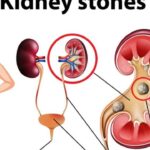In some people, after eating, they feel bilious and sleep off; could this be overeating or something that requires medical attention? Today, our focus is on diabetics, and we will be discussing the following: Is feeling sleepy after eating a sign of diabetes? We will also outline the relationships, causes, and how to manage diabetes in this article.
People with diabetes can suffer from postprandial somnolence (the feeling of drowsiness after a meal). You feel sleepy immediately after eating because of the changes in blood sugar levels and insulin sensitivity.
What does diabetes mean?
Diabetes is a condition that affects how your body uses glucose. The two main types are: type 1 and type 2 diabetes.
Type 1 diabetes is an autoimmune response where your body destroys the insulin that produces cells in the pancreas. On the other hand, in type 2 diabetes, the pancreas produces less insulin than the body is used to, and when this occurs, your body becomes resistant to insulin.
The body either says that it cannot produce enough insulin to regulate the blood sugar level or says that your body is no longer willing to accept insulin produced. The two types of diabetes are dangerous because, if not well controlled, they can lead to hypertension and, in the worst cases, death.
Common symptoms of diabetes
Urge to drink water
Drinking enough water daily is good, but when the urge increases, it means that you are losing water, and this is one of the early signs of diabetes, especially in adults.
Frequent urination
Another sign of diabetes is frequent urination. When the glucose level is high, it makes one pee often. Normally, because the body is resistant to insulin and cannot control the blood sugar levels, everything changes, resulting in constant urination.
Sudden weight loss
If you are not on any diet plan for weight loss and you notice that you are losing weight, this could be a sign of diabetes.
Fatigue
Feeling weak almost all the time is not what you should ignore. Fatigue is among the symptoms of diabetes. Someone suffering from diabetes feels weak because the pancreas cannot produce sufficient insulin or the body does not use insulin efficiently.
Slow healing wounds
Most people with diabetes always have injuries, and it takes time for the wound to heal. So, if you have bruises that take longer than usual to heal, it could be a sign of diabetes.
Tingling or numbness in hands or feet
Diabetes affects the nerves, so a person feels a sensation such as tingling or numbness in the limbs.
Recurring infections
Being diabetic makes it difficult for the body to fight infections, especially recurrent urinary tract infections or skin infections.
Is feeling sleepy after eating a sign of diabetes?
Yes, feeling sleepy after eating is a sign of diabetes. Unlike other hormone-secreting glands in the body, the pancreas only releases its hormone—insulin—when you are eating. Diabetes is a disease that any person would want to care less about.
Diabetics must be vigilant all the time. The first step is to avoid anything that would trigger a spike in the blood sugar level; secondly, you should take care of your health and pay attention to the signs your body is giving you.
The link between food and sleepiness
Meals rich in carbohydrates and fats can cause drowsiness because the body is likely to produce more serotonin (a sleep-inducing chemical). Heavy and carbohydrate-based foods put more pressure on the body’s metabolism and therefore make you feel tired after eating.
On the other hand, foods rich in proteins and fibers provide long-lasting energy. Vitamins and minerals also help control our sleeping habits. For example, foods containing magnesium, such as nuts and green leafy vegetables, will relax muscles and help people to fall asleep.
There is also the issue of the time that we take our meals. Consuming many foods before going to bed can also hurt our sleep because our body’s energy concentrates on digestion rather than on sleeping.
As people often quote, nothing in life just happens. If it reaches the level that as soon as one eats, the person will sleep, it is advisable to see a doctor because it seems ‘abnormal’.
Possible reasons for this post-meal tiredness include hormones such as insulin and melatonin levels released during digestion that take most of the blood supply to the stomach rather than going to the brain, or consumption of foods that have high carbohydrates and/or sugars.
When we eat, we secrete insulin in our bloodstream to control the level of glucose in the blood. In addition, this can make us easily exhausted or sleepy after taking our meals.
How food affects blood sugar levels
One of the things that can affect your blood sugar is the foods you take. A diet rich in carbohydrates will result in a high increase in blood sugar, while a diet rich in protein and fresh fruits will prevent a quick increase in blood sugar.
This is because diabetics need to monitor what they take to ensure that their blood sugar stays normal. The solution is to be extra careful with what they eat.
As mentioned earlier, people tend to feel sleepy after eating, mainly because the pancreas that regulates your blood sugar levels and tells your stomach when to empty is no longer functioning well.
Also read: Are Cherries Good For Diabetics?
How to manage postprandial sleepiness
If the blood sugar levels rise and then fall after a meal, it will make you tired. To manage postprandial sleepiness in diabetics, here are tips to follow:
- Eat Right
To control postprandial sleepiness in diabetics, one of the tips is to eat small portions during the day. Usually, when you eat heavy foods, it can make you weak, which makes the person feel sleepy. Protein and fiber help regulate blood sugar and also prevent sleep, especially after eating.
A low-glycemic diet plan like proteins and fiber foods like lean meats, beans, and vegetables slows down the release of sugars into the bloodstream.
- Eat at the right time
At times, if you eat late, it can also make you sleep immediately after eating. So, a person need to focus on the right time to eat, most importantly if he/she has diabetes. An adult requires 7-9 hours of sleep every day and should avoid bad sleeping patterns.
- Choose foods low in refined sugars
The intake of refined sugars may lead to high levels of blood sugar, after which a decline is experienced and results in tiredness. Choose foods that won’t spike your blood sugar but are rich in complex carbohydrates and good fats.
- Drink Enough Water
Dehydration is among the things that can make a person feel sleepy after eating. Always drink enough water, at least 8 glasses daily.
- Take a short walk after eating
Do not retire to the living room and sit right after the meal; try a five- or ten-minute walk to help the food digest quickly as well as increase energy levels.
- Avoid heavy, greasy foods
Fatty foods take a long time to digest, which is why after their consumption, the person may experience tiredness.
When to see a doctor
‘Too much of everything they say is bad‘. When you often sleep just after eating, diabetes can be the culprit. This is because high blood sugar levels may cause one to be more exhausted.
If you often find yourself sleepy after taking meals, you should go for a blood sugar test, especially if there are other signs such as frequent urination, loss of appetite, and poor vision, among others.
Diabetes is a disease that affects the body’s glucose-metabolizing process; weakness is one of the complications of diabetes. If you are experiencing these symptoms, it is important to go for a diabetes test. Careful and timely diagnosis of diabetes can prevent so many complications as well as enable people manage the disease.
A person suffering from diabetes gets easily tired or sleepy after taking a meal if the meal contains carbohydrates or sugar. This is because your body might not be able to regulate blood sugar levels well, resulting in a drastic drop in energy an hour or so after a meal.
One of the first signs of type 2 diabetes is that after taking any carbohydrate, the person feels sleepy. This happens because your body might be unable to maintain a normal blood sugar level and may get exhausted shortly after taking a meal.
Some of the symptoms of diabetes include dry skin, difficulty breathing, constant dizziness, frequent urination, sudden loss of weight, and poor sight, among others.
If you feel that you have type 2 diabetes, you need to see a doctor or healthcare provider for a proper evaluation. They can use a blood test to establish the amount of glucose in your body and advise on the best action to take to control the condition.
Is feeling sleepy after eating a sign of diabetes? Yes, however, it would also be relevant to note that drowsiness after taking a meal may just be normal for some persons, and hence it may relate to eating more food than necessary.
But if this feeling does not subside and other symptoms are occurring simultaneously, then it is high time to go to the doctor.



